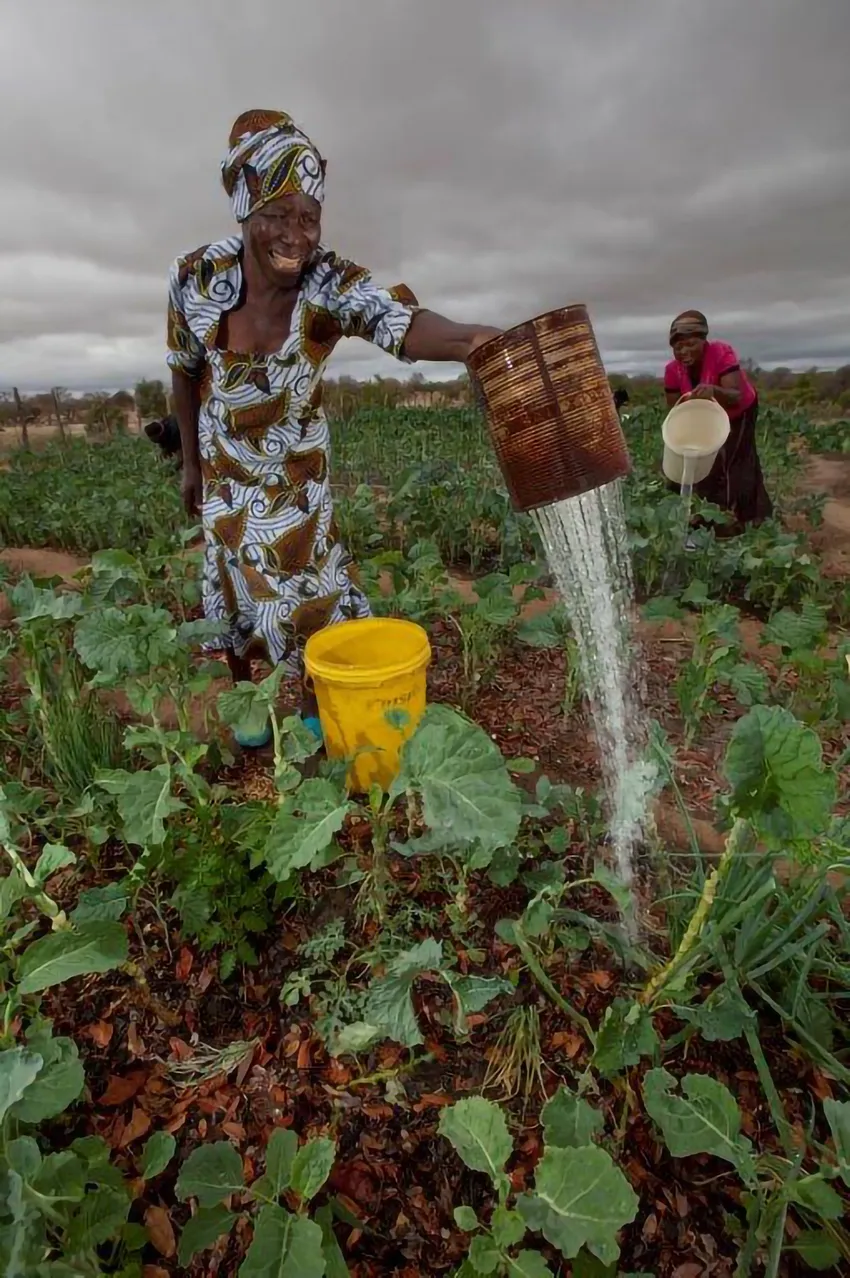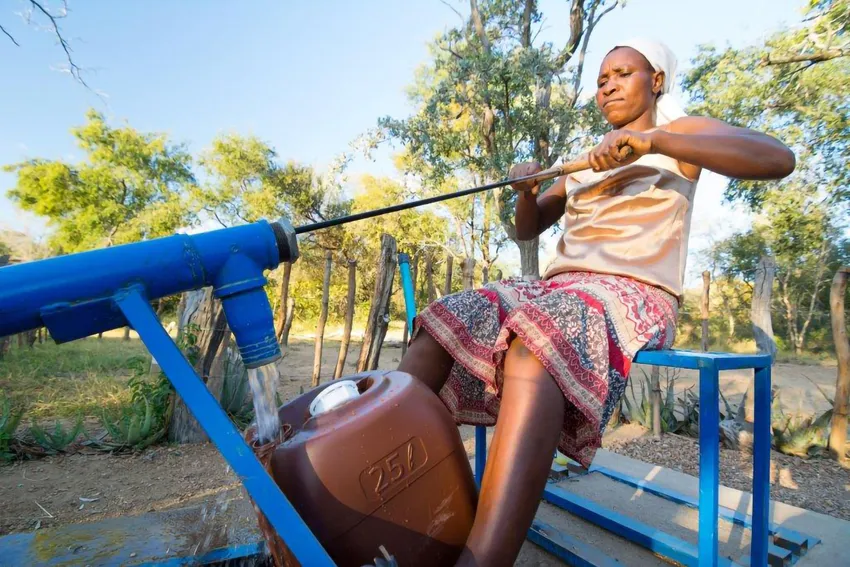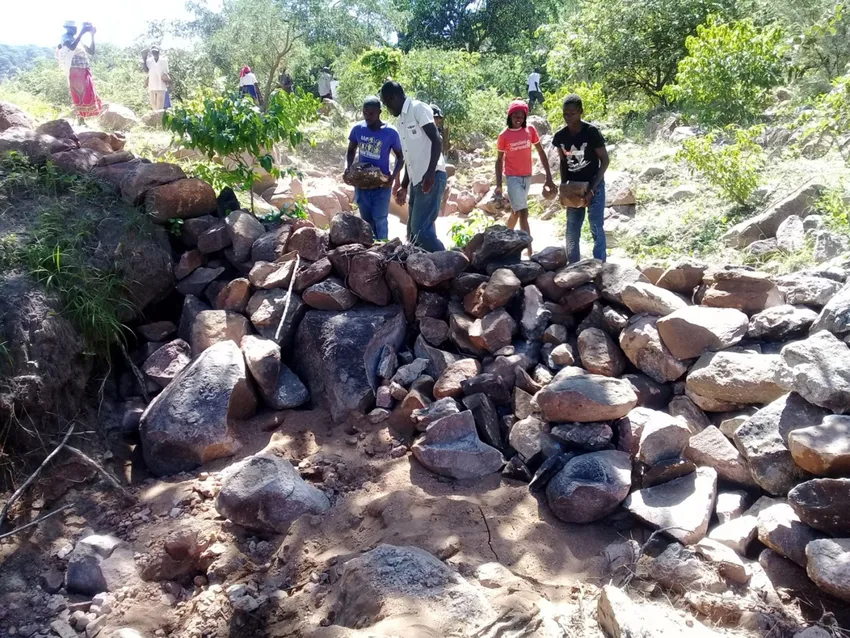This campaign has now closed
We are raising funds to build two sand dams and implement a range of environmental protection measures in southern Zimbabwe, in an area experiencing severe land degradation and water scarcity, to strengthen the resilience of a community and in turn reduce rural poverty.
Categories
Beneficiaries
Situation
Water scarcity and polluted water sources are increasingly threatening people’s livelihoods and valuable ecosystems in southern Zimbabwe. Severe environmental challenges (including deforestation, climate change and land degradation) are further compounding the problem, leading to a decline in soil fertility and food availability, with chronic food shortages. In turn, vulnerable rural communities who rely on agriculture and keeping livestock are increasingly experiencing high levels of poverty.
Solution
A community in southern Zimbabwe will construct two sand dams, providing them with year-round access to clean, safe water (a sand dam can store up to 40 million litres of water which meets WHO standards for drinking, trapping water at the point it falls). The community will also be trained in environmental conservation techniques, and will be supported to establish community-managed woodlots, helping to restore degraded land and improve soil fertility for farming.


